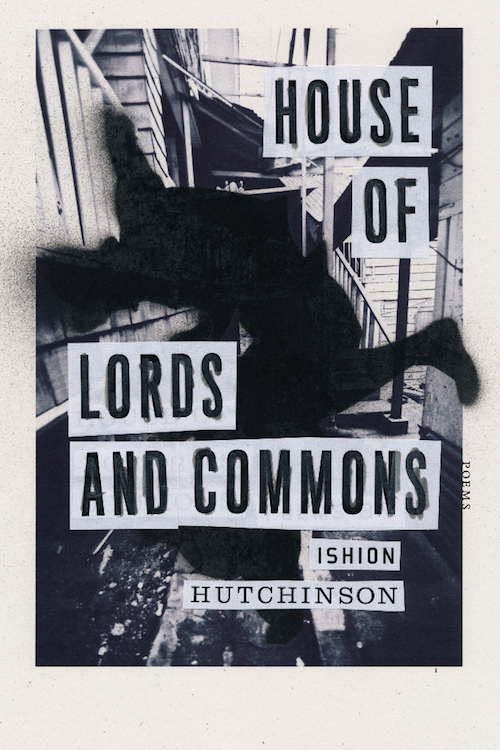Ishion Hutchinson's House of Lords and Commons Reviewed at the New Yorker

At the New Yorker, Dan Chiasson takes us for a wild ride through the "Miltonic graffiti" of Ishion Hutchinson's second book, House of Lords and Commons. Chiasson sets off his review with this salvo: "Hutchinson, who is thirty-three and teaches at Cornell, might be called a post-post-colonial writer: his art, suspicious of top-down institutions—including academia—finds in the impasto treatment of sensory minutiae a protest against abstract authority. These poems might be shimmed into a syllabus or buried in a casketlike journal article, if they weren’t so punk-baroque and brat-belletristic." Throughout the review, Chiasson weighs concerns of poetic lineage, tradition, timelessness with Hutchinson's wildly euphonious lines that feel as if they're growing out of one another. More:
Hutchinson’s wildness and his propriety are two sides of the same coin, two expressions of a fundamentally dynastic sense of poetic tradition that is passed down from literary father to son, and that arises partly, these poems suggest, from the void left when Hutchinson’s real father vanished. He is a poet of ambivalent homage, feinting but never feigned: this is a form of aesthetic survival in a post-colonial situation, where literary mastery and subjugation are, uncomfortably, closely aligned. You can tell how good Hutchinson is because his poems are full of misfires, phrases chosen by somebody with a hyperkinetic ear and no off switch. Various famous proverbs of Blake’s come to mind, but here the road to excess doesn’t, in every case, lead to the palace of wisdom. Randall Jarrell once said of Hutchinson’s eminent predecessor, “Only a man with the most extraordinary feel for language, or none whatsoever, could have cooked up Whitman’s worst messes.” I could make a list of Hutchinson’s messes: a funny sight “scythes your sides with laughter”; after a hurricane, “government surveyors” go from shanty to shanty, “accessing stunned fowls.” Phrases like these can be found on every page. Hutchinson swings for the seats with every line; it’s only natural that he sometimes whiffs.
But there is also a quiet, chastened strain in “House of Lords and Commons,” whose title recalls Shelley’s famous assertion that poets are the “unacknowledged legislators of the world,” while also suggesting, I think, the influence (at times faintly damaging) of William Butler Yeats, who served in the Irish senate for two terms. Hutchinson’s language is an assembly of sorts, a parliament that distributes power among the high and the low. This conscious yoking of “lords” and “commons” (high and low subjects, high and low diction) is most impressive when the rhetorical volume is turned down, as in “Girl at Christmas,” the one flawless poem in this very promising book. Christmas is a colonial imposition, a cornerstone of the system that made slavery possible and poverty inevitable; but it is also the highlight of this little Jamaican kid’s year, and its subjugations have simultaneously been outed by and sublimated into song:
For all she’s gladdened: milk
dreaming love in one hand;
clefts of clementine stainthe other. They cannot die;
the coral joy and battering
ceramic, the peach bonesand scotch bonnet seeds;
the sorrel, and foil mask she then puts
on to belt her savage choir. ♦
Head to the New Yorker to read on, from the top.


